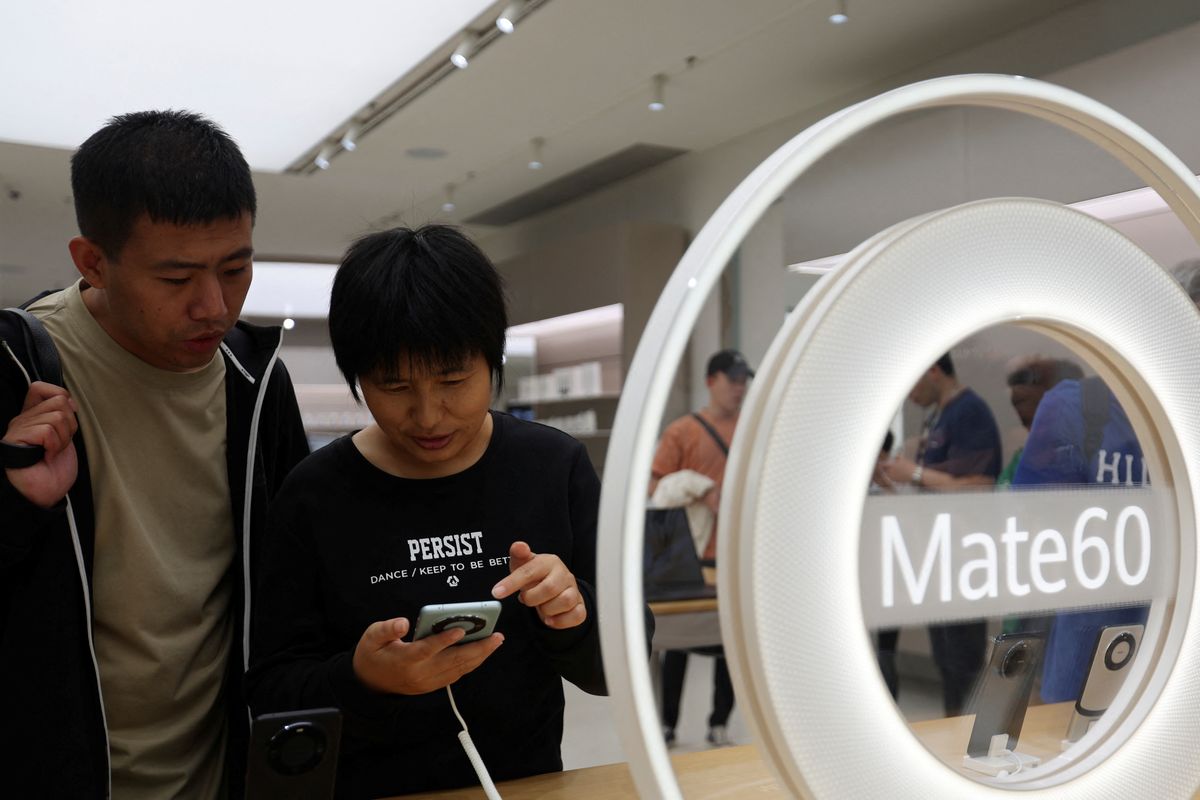At Huawei’s product launch, mum’s the word on its new smartphones
During a launch event on Monday, Huawei left its eager audience hanging by not disclosing details about its reported advanced chip or its new phones.

A few minutes every morning is all you need.
Stay up to date on the world's Headlines and Human Stories. It's fun, it's factual, it's fluff-free.
The backstory: A few years ago, Chinese telecommunications giant Huawei first found itself in the crosshairs of geopolitics. In 2019, the US Trump administration raised concerns about national security and imposed strict limits on Huawei's access to important technology resources. Officials were worried about Huawei's ties to the Chinese government, fearing potential data breaches and espionage. This move led to restrictions on Huawei's access to crucial tech resources, including US semiconductor tech. Being blacklisted put a lot of pressure on Huawei’s global smartphone business.
Fast forward to the Biden era – Huawei was still blacklisted over national security concerns, but the US-China tech competition was also heating up. The US tightened export controls on advanced semiconductor chips, design software and chip manufacturing equipment to Chinese companies, including Huawei, to slow China’s overall tech advancement.
More recently: In August, Huawei reported its third consecutive quarter of revenue growth. How did it manage this comeback? With support from the Chinese government and by strategically expanding into new sectors like cloud computing and achieving strong smartphone sales.
Then, the company introduced several new smartphones in August. These new devices come equipped with advanced chips, and these chips were made in China – suggesting that the country has made breakthroughs in its domestic production of advanced semiconductors despite the chip curbs put in place by the US and other countries.
The development: During a launch event on Monday, Huawei left its eager audience hanging by not disclosing details about its reported advanced chip or its new phones. Instead, it announced two new electric cars – a sedan and an SUV. It also revealed new wireless earbuds featuring Huawei's Kirin A2 chip. Instead of phones, Huawei showcased a new smartwatch, a sleeker and lighter tablet and a stylus that connects to the tablet using Huawei's NearLink technology.
The lack of details about the company’s new smartphone lineup left many puzzled, even though Richard Yu, the head of Huawei's consumer business group and its car-related operations, had hinted early in the event that phones wouldn't be the focus. Many viewers of the launch event online left comments asking for more details.
Key comments:
“Huawei’s new phone demonstrates that China is figuring out ways to limit the impact of sanctions, and this will necessitate tactical changes in US export controls and other restrictions to achieve the same strategic goal,” said Matthew Bey, an analyst at US-based geopolitics and intelligence firm RANE.
“There will be pressure on the US to reconsider its export controls strategy, which was based on the assumption that controls would prevent Chinese companies from producing advanced-edge chips, while the business-as-usual approach would continue at the trailing-edge nodes. It is increasingly becoming clear that this distinction doesn’t work in reality,” said Pranay Kotasthane, deputy director of the Takshashila Institution, to CNBC.
"We believe the restrictions have the potential to slow Apple's sales growth in China," said D.A. Davidson analyst Tom Forte. "This could provide an additional challenge for the company, as its revenues from China have already been negatively impacted by a challenging macroeconomic environment in that country."
“It’s expected that Huawei will pose a bigger challenge to Apple in China than the geopolitical issue,” Will Wong, a senior research manager at IDC, told CNBC. “This is because Huawei not only has the same premium brand image as Apple but also is a national pride in China.”




Comments ()